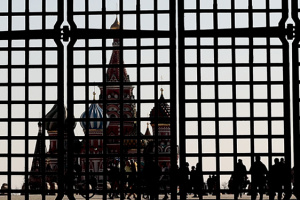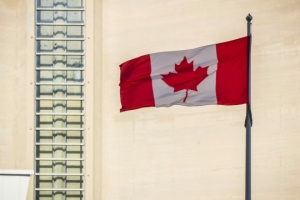
ESBU reboot: when to expect it and what will happen to Bureau afterwards
One of the few MPs' amendments supported by the Verkhovna Rada during the first reading of the draft budget for 2024 was a proposal to reduce funding for the Economic Security Bureau of Ukraine (ESBU) by UAH 409 million and limit the maximum number of its employees from 4000 to 1400. And this is not the only unpleasant news for ESBU employees: it seems that there are more and more supporters in the political and business communities for the idea of rebooting the law enforcement agency that was created only the year before last.
WHAT'S WRONG WITH THE BES? TOO COMPLEX TASKS, GROWTH DISEASES OR PERSONNEL MISCALCULATIONS?
The need for a reboot is explained by the fact that the Bureau has not become a primarily analytical structure that prevents and counteracts economic crimes. Instead, it operates by force, no different from the former tax police with its pressure on business and "mask shows." According to the supporters of the new reform, one of the key reasons for this is the formal approach to personnel competitions (or even their complete absence for many vacant positions), which resulted in the backbone of the new Bureau being former officials of the same liquidated tax police.
At the same time, the agreements with the IMF provide for the creation of a single body in Ukraine that will combat economic crimes against the state and tax evasion. By definition, it should be the ESBU. But will the Bureau in its current form be able to perform this function? Many doubt it.
Claims to the activities of the Economic Security Bureau of Ukraine began to appear almost from the very first days of its work. Even the appointment of the former head of the State Fiscal Service as the first head of the Bureau was taken with a grain of salt by many, despite the fact that Vadym Melnyk had won an open personnel competition.
However, there were also those who believed in the future success of the new structure, which, according to the law, should focus primarily on analytical work. So they expected quick results from the ESBU. When this did not happen, the army of critics naturally began to grow rapidly.
To be fair, we should not forget that the most important period of the new institution's formation was at the beginning of Russia's large-scale aggression against Ukraine. This affected the Bureau's funding, staffing, and functionality.
But we should not blame all the troubles on the war alone. For example, the problems with holding personnel competitions to bring in "fresh blood" from outside and with the lack of transparency of appointments and "shuffling" of officials within the structure appeared even before the war. Apparently, they have not disappeared to this day, and in some areas they have even intensified. Ukraine's international partners have also noticed this.
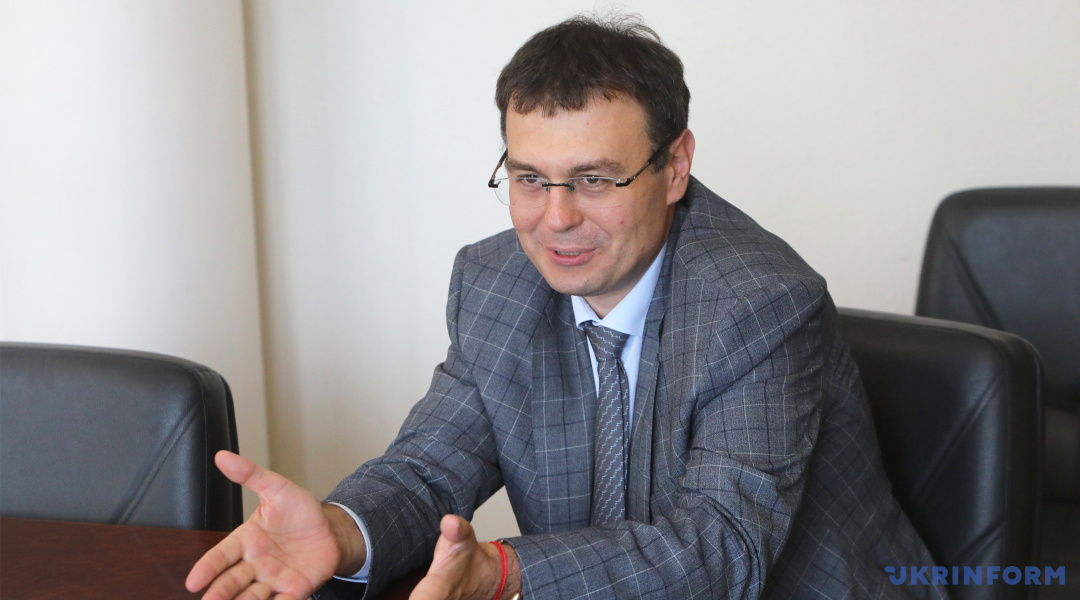
"The ESBU is the most important body in controlling the use of the funds they (the partners) are providing us now and will provide for the recovery. It is the number one authority. And it is impossible to leave this area in the state it is in now. Tax police officers should not make up 80% of the staff," explained Danylo Hetmantsev, Chairman of the Parliamentary Committee on Finance, Tax and Customs Policy.
In particular, the topic of ESBU is reflected in the Letter of Intent and the Memorandum with the IMF on Economic and Financial Policies on a new Extended Fund Facility for Ukraine of March 24, 2023. As noted, the fight against tax evasion and strengthening of governance in the tax system require a powerful supervisory authority that can not only investigate financial and economic criminal offenses against the state, but also provide independent analytical support to identify tax evasion schemes and facts.
"With this in mind, we are preparing amendments to the Law and reorganization of the ESBU to clearly define its functions in line with the best practices in this area, strengthen its analytical component and make it subordinate to the Ministry of Finance. To begin with, we will revise the legal framework for the ESBU and develop transparent processes for selecting staff and management on a competitive basis. We will also tighten the requirements for the selection committee and introduce a clear competitive selection process, as well as streamline the activities of the Public Control Council at the ESBU. We will develop a mechanism for staff certification and introduce a contractual system for employees," the Letter of Intent states.
Several steps have been taken to this end. However, society has not yet seen the main ones related to updating the legislation. However, both the Verkhovna Rada Finance Committee and the Ministry of Finance made it clear back in April that the legal basis for the reform is expected to be approved by the end of this year.
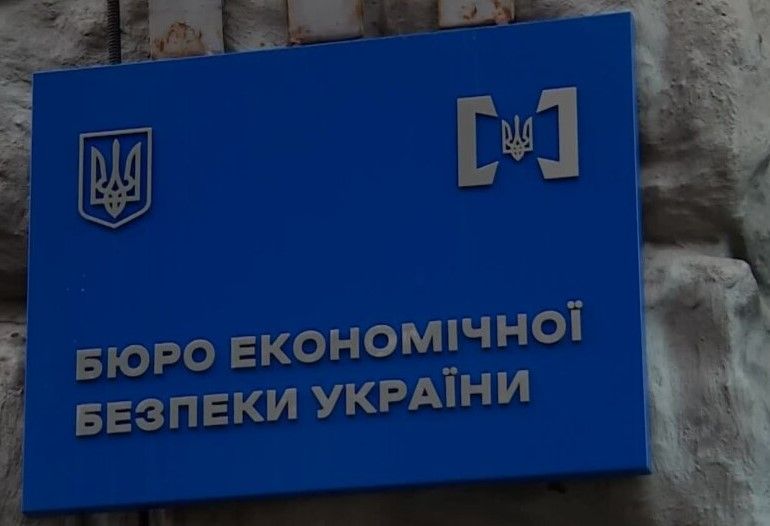
REBOOTING THE ESBU: LEGISLATIVE INITIATIVES
In mid-October, the Parliamentary Committee on Finance, Taxation and Customs Policy approved as a basis and recommended two draft laws on the ESBU reboot - Nos. 10088 and 10088-1 - for consideration in the session hall. Some provisions of the documents differ, but the main ones are identical: holding a new transparent competition for the position of the ESBU head (with significant participation of international experts in the competition commission, following the example of NABU/NAPC), certification of all current employees of the Bureau to assess their professional competence, level of knowledge and skills, professional ethics, integrity and conflict of interest.
The key reason for the reform, as stated in the Explanatory Note to the first draft law, is that "almost two years have passed since the establishment of the ESBU [the Bureau officially started working on November 25, 2021], however, this new state body has not demonstrated the expected efficiency, transparency, zero tolerance for corruption."
The dismissal of the first head of the ESBU, Vadym Melnyk, on April 11 this year and the appointment of first one and then another acting director of the Bureau did not help much either. This did not affect the agency's personnel policy: vacant positions were filled sluggishly and mostly by people from the "system" - former tax police and other security officials.
"The ESBU management did not ensure timely formation of the staff, which is staffed by only 20.6% of the staff (as of September 1, 2023, the staff consisted of 827 employees out of the required 4000). Most of the staff of the central office of the State Fiscal Service of Ukraine, which worked under Melnyk's leadership, after his dismissal due to the liquidation of the body and appointment as Director of the Economic Security Bureau of Ukraine, were appointed to the central office of the ESBU, which discredits the main idea and purpose of liquidating the tax police. We are talking about a fundamental revision of approaches to working with business and combating criminal offenses that infringe on the functioning of the Ukrainian economy. Instead, there was a massive, virtually non-competitive transfer of former tax police officers to the newly created body," the authors of the draft law remind.
At the same time, most of the "out-of-system" people who wanted to work in the Bureau were not allowed to participate in personnel competitions (sometimes without explanation). The assessment of candidates, according to the parliamentarians, was subjective. For almost two years, the approach to the personnel issue has not changed.
"During the entire period of the Economic Security Bureau of Ukraine's activity, not a single competitive selection for managerial positions has been announced, all heads of departments were appointed without competition to the positions of temporary acting heads through promotion," the Explanatory Note says.
In addition, the Director of the Economic Security Bureau of Ukraine appointed people to the positions of public officials who had not undergone special vetting in accordance with the requirements of anti-corruption legislation.
There are also complaints about the development of the ESBU's territorial divisions. As of September 20, 2023, the ESBU's territorial offices were established in only 7 regions (Kyiv, Volyn, Lviv, Odesa, Poltava, Zakarpattia and Chernivtsi) and in Kyiv.
"Such a selective selection of regions for the creation of territorial offices calls into question the impartiality and objectivity of the person who made such management decisions and violates the principles of creation and functioning of territorial divisions of central executive authorities. The creation of most territorial departments only in regions where there are state border crossing points may indicate a desire to establish control over the movement of goods through customs," the authors of the legislative initiative believe.
They also draw attention to the selective approach to cases that become the subject of ESBU investigations. Sometimes a strange situation arises when proceedings within the ESBU's jurisdiction are opened by other law enforcement agencies, and vice versa - when ESBU employees "take away the bread" from their colleagues, including NABU.
"Contrary to the position of the President of Ukraine that all "economic" offenses should be investigated by a single pre-trial investigation body, 80% of criminal proceedings under the ESBU's jurisdiction continue to be investigated by other bodies, which discredits the main idea of the Bureau's creation," the MPs conclude.

Yaroslav Zheleznyak, First Deputy Chairman of the Verkhovna Rada Finance Committee, gave examples: "The most investigated articles of the ESBU are: 212 "tax evasion" (488 criminal proceedings); 204 "illegal manufacture and sale of excisable goods" (281 criminal proceedings); 203-2 "illegal gambling" (123 criminal proceedings). However, no criminal proceedings were registered in January-September under 8 articles of the Criminal Code of Ukraine, which fall under the exclusive jurisdiction of the ESBU."
ESBU'S POSITION: REACTION AND EXPLANATION
Despite such accusations, the Economic Security Bureau of Ukraine is constantly present in the information field, reporting on open proceedings and searches and seizures of documents, money and other material assets. However, supporters of the idea of rebooting the ESBU believe that although many of these cases involve high-profile investigations that definitely promise the initiators public attention and clickbait headlines in the media and social networks, they are usually targeted attacks. Instead, according to the law, the ESBU's task is to solve the problem in a comprehensive manner and prevent abuses through in-depth analytics.
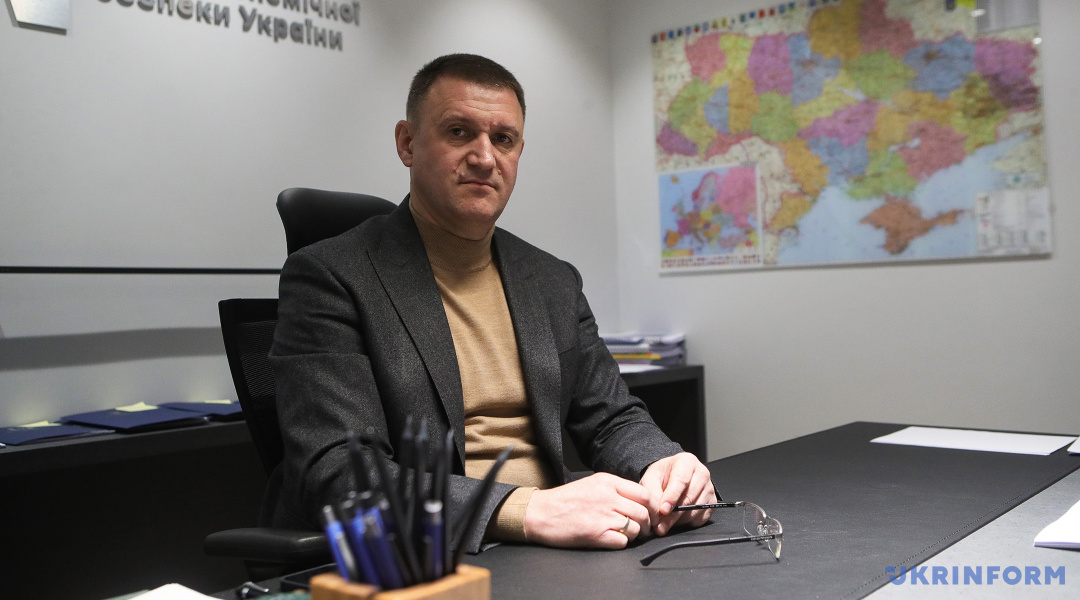
At the same time, the ESBU itself has consistently denied accusations of "pointedness" and preservation of old "pre-reform" approaches to investigations. In November last year, Vadym Melnyk, then Director of the Bureau of Economic Security of Ukraine, in an interview with Ukrinform, emphasized the tough fight against the shadow sector, thanks to an analytical approach.
According to the current head (acting director) of the ESBU, Andriy Pashchuk, despite the visible part of the "iceberg" - reports of high-profile crimes - the analytical component prevails in the Bureau's work. And this is facilitated by the involvement of experienced people as analysts and detectives who do not need to be trained from scratch.
"It is much more difficult for people without experience in law enforcement. Let's open the tax base for them and see how long it will take them to understand how it works. I think it may take a year. Because this is a completely different layer of databases. And it is quite difficult to make an analytical product based on these tax and customs databases, indicating risks and explaining the processes that took place. I will be criticized, but I will say that you need to learn earlier, and then you need to work! An analyst has to come and start producing a product," Pashchuk is convinced.
By the way, he also disagrees with the estimates of "massive involvement" of former tax police officers in the Bureau. In fact, it is difficult to calculate the exact percentage of former tax police officers.
"I set a task for the head of the HR department to count those who had been in the organization for more than five years. We have 20% of them. Why is this so? Because I know from my own experience that established specialists in narrow areas are those who have more than 4-5 years of experience. After the last competitions, many people came to us from the National Police, the Prosecutor's Office, and the State Bureau of Investigation," the official said.
He believes that the absence of a number of important norms in the national legislation that would make violations impossible, particularly in the production and sale of excisable goods, is a much bigger problem than the personnel problem.
"We have repeatedly emphasized that the excise tax exemption for the import of raw materials is used by criminal groups to obtain uncontrolled volumes of raw materials for production. On the other hand, it makes life easier for legal businesses. That is why we have repeatedly appealed to both the relevant parliamentary committee and the Ministry of Finance to change approaches to the administration of such operations. And here, the ESBU analysts are doing exactly what business and lawmakers wanted the Bureau to do - to find out how money is leaking out of the budget and why the treasury is not receiving it. We find it, and we address MPs. Then we need their reaction in the form of changes to the legislation," says Pashchuk.
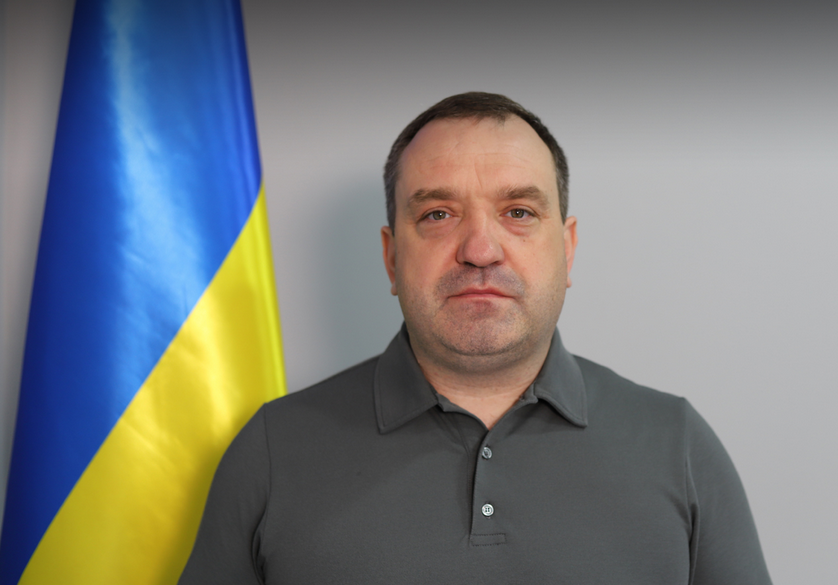
He cites examples where raw materials for the production of excisable goods have been accumulated for a long time and then suddenly "spoiled". Thus, the company declares losses, because it did not produce products from such raw materials, and therefore did not receive money from their sale, and therefore does not have to pay excise taxes. According to analysts, the total amount of excise tax owed is UAH 25 billion. This is what the state did not receive. The same applies to manipulations with the amount of electricity consumed for production needs.
Instead, the creation of a unified information system, as envisaged by the ESBU legislation, would help to remotely control all these processes: based on data on purchased raw materials, energy resources used, and a number of other indicators, an analyst would be able to draw conclusions about potential violations "from a distance." And then the companies that fall into the risk group will be visited with physical inspections.
But building such an information system requires a lot of money. This is how the ESBU explains its proposals to increase funding for the Bureau's work. "These funds are needed to complete the formation of the service. And if the funding is UAH 1.7 billion (the real annual need for the ESBU is estimated at UAH 4.5 billion), we will be able to pay salaries, open two new territorial offices in the regions where we see the most risks - in Vinnytsia and Dnipro regions. But most of the funds are still needed to build a unified information system, and we can't even start developing the project," Pashchuk complains.

FUTURE ESBU: PROPOSALS FROM THE BUSINESS COMMUNITY
According to Yaroslav Zhelezniak, the authors of the draft laws on rebooting the Economic Security Bureau of Ukraine have already presented their proposals to the business community and the expert community. Most of the assessments are in favor of the reform.
"We hope that the reboot of the ESBU, re-certification of its employees, as well as the envisaged independent audit of the Bureau's activities will significantly improve the investment climate in Ukraine and lead to an increase in budget revenues not by increasing fiscal pressure on business, but by counteracting tax evasion schemes and effective investigation of economic crimes," the Union of Ukrainian Entrepreneurs said in a letter.
The European Business Association is also in favor of the adoption of the ESBU's draft law:
"The EBA supports the main idea of the draft law that ESBU employees should be selected on a competitive basis in several stages without giving any preference to candidates who are currently working in law enforcement.
To achieve this goal, it is necessary to ensure proper representation of the public in the ESBU competition commissions and to provide for effective mechanisms of public control over the selection and dismissal of ESBU employees, including integrity checks."
Similar assessments are contained in the appeals of other influential business associations - the American Chamber of Commerce in Ukraine, the Ukrainian Business Council, the Association of Taxpayers of Ukraine, the Ukrainian Chamber of Commerce and Industry, and the All-Ukrainian Agrarian Council.
All these organizations promised to assist in preparing the agreed draft law on reforming the ESBU for the second reading in parliament. The same support is promised by the leading economic think tanks - CASE Ukraine, Institute for Tax Reforms, Center for Economic Strategy, Institute for Social and Economic Transformation, Center for Economic Strategy, Institute for Economic Research and Policy Consulting, Institute for Analysis and Advocacy, DiXi Group and others.
Yaroslav Zheleznyak hopes that this consensus and joint work will result in a balanced document, the implementation of which will guarantee a real reform in this important area. According to his estimates, the government also supports the reform of the ESBU, which the President, government officials, and officials of the Presidential Office have all spoken about the need to reboot. There are also favorable conclusions of the relevant parliamentary committees and the PIC.
"There are only MPs left, and we will know their opinion very soon. But I hope that my colleagues will not let me down," the parliamentarian concludes.
It is not yet known when the draft laws No. 10088 and No. 10088-1 will be included in the agenda of the plenary sessions. Hopefully, the reform will not be postponed "under the Christmas tree".
Vladyslav Obukh, Kyiv


